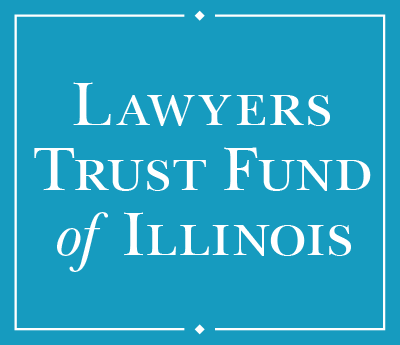LTF was established by the Chicago and Illinois State Bar Associations in 1983. Subsequently the Illinois Supreme Court designated LTF to administer the Interest on Lawyers Trust Account (IOLTA) program and make grants to support the provision of legal aid throughout Illinois. Today LTF makes grants from revenue from IOLTA as well as the annual Legal Aid Fee assessed on active Illinois lawyers at the direction of the Supreme Court. In June 2012 the Supreme Court increased the fee to $95 [PDF] beginning with 2013 attorney registrations.
Since 1983, LTF has made more than $120 million in grants to non-profit legal aid organizations in Illinois. In the current year, LTF is distributing more than $9 million in grants to 37 legal organizations with offices in 20 counties throughout the state. (LTF’s current grants are listed here.)
Improving the Legal Aid System
LTF’s approach to grant-making has prioritized building strong and effective organizations and fostering innovation. Grants are awarded through an annual, competitive process that ensures the legal aid system generates a return on LTF’s investments.
Under the leadership of its board, LTF has long taken responsibility for launching and funding innovative efforts to expand the capacity and reach of Illinois’ legal aid system. Key LTF initiatives include:
- Conducting statewide legal needs studies. (1989 and 2005)
- Computerizing legal aid offices across Illinois. (1990 – 1998)
- Creating and funding CARPLS, Illinois’ first legal aid hotline. (1993)
- Providing leadership and financial support to obtain the first state appropriation for legal aid, now administered by the Illinois Equal Justice Foundation. (1999)
- Spearheading the development of Illinois Legal Aid Online to provide web-based legal information for consumers and lawyers. (2000)
- Creating and funding the Illinois Coalition for Equal Justice, which has established self-help legal centers for pro se litigants in nearly 100 downstate counties. (2005 – 2013)
- Upgrading case management systems for legal aid providers. (2008 – 2011)
- Supporting the use of automated document assembly and other knowledge tools to increase the efficiency of legal aid offices. (2012)
- Start-up funding for the Supreme Court Commission on Access to Justice. (2013)
- Bringing business process analysis into legal aid programs to increase efficiency in operations. (2013 – present)
LTF currently is working with the state’s largest legal aid programs to develop an online intake system and is promoting the full utilization of technology tools to maximize program effectiveness.
